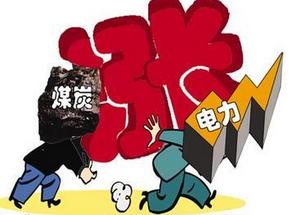 Excessive "favoritism" in the coal industry is actually harming the market.
Excessive "favoritism" in the coal industry is actually harming the market. On May 28, a source from the coal sector shared with the "Daily Economic News" his perspective on the current state of the coal market. He described the situation as an overabundance of "favored treatment," referring to recent government interventions in provinces like Henan and Shanxi. These actions include the so-called "coal and electricity mutual protection" policies, which aim to shield local coal producers from competition.
Despite differing opinions within the industry, local governments often step in when their key industries face difficulties. This has led to a recurring pattern where market-oriented reforms for thermal coal have been repeatedly stalled by such protective measures. Over two decades of reform efforts have struggled against this kind of intervention.
The "coal and electricity mutual protection" policy first emerged in Henan. In April, several coal companies in the province held a meeting urging the government to implement a rescue plan. According to public reports, the plan aimed to prioritize the use of locally produced coal in power plants, block coal imports from other provinces, and stabilize local coal prices.
By May, Henan officially launched its "coal and electricity mutual protection" policy, introducing a system that linked power generation with coal procurement. It blocked the entry of out-of-province coal into the province. Under the new rules, power plants were required to purchase a certain amount of local coal to receive electricity credits—10,000 tons of coal earned 10 million kWh, while under-purchase resulted in deductions of 12 million kWh.
Similar measures are now being considered in Shanxi. Recent media reports suggest that the province is also planning to restrict the inflow of foreign coal. A survey in Datong revealed that local coal companies strongly oppose the use of imported coal by power plants, arguing it hampers the release of local production capacity.
However, power companies have their own concerns. One executive noted that importing coal from Inner Mongolia is cheaper than buying local coal.
According to statistics, 29 million tons of coal from Shaanxi and Inner Mongolia entered the Shanxi market in the first four months of this year. That means nearly 87 million tons of out-of-province coal is taking up market share. Given this, Shanxi’s decision to follow Henan’s lead with similar policies seems logical, though controversial.
Other provinces, like Shandong, have also taken steps to support their coal sectors. The Jinan Railway Bureau has restricted coal shipments and stopped the import of outside coal. It requires power companies and coal firms to sign supply contracts at prices 50 yuan per ton higher than the market rate.
The push for marketization in the coal sector has faced yet another setback. In December 2012, the State Council issued guidelines emphasizing market-driven reforms, aiming to let the market play a central role in resource allocation. Later that month, the National Development and Reform Commission issued a circular reinforcing this stance, urging local governments to reduce interference in coal trading.
Experts interpreted these moves as a signal that the government should no longer act as a “mother-in-law†in coal transactions, allowing buyers and sellers to operate independently and ensuring true marketization.
However, under pressure from coal companies, many local governments have implemented “coal and electricity mutual protection†policies, once again stalling the long-awaited market reforms. For the coal industry, this has brought more challenges rather than relief.
After Henan introduced its policy, coal shipments from Shanxi to Zhengzhou dropped sharply, leading to a rise in local coal prices. This created a counter-effect, prompting Shanxi to adopt similar measures to protect its own interests. As a result, coal markets across regions have become increasingly insular.
“Such self-protective measures are not market-friendly and can severely hinder healthy competition and reduce the efficiency of coal enterprises,†said Lin Boqiang, a member of the National Energy Experts Advisory Committee, in an interview with the “Daily Economic News.â€
Complex Precision Turned Parts
Stand Dragon Industrial Co., Ltd. , https://www.standdragontw.com